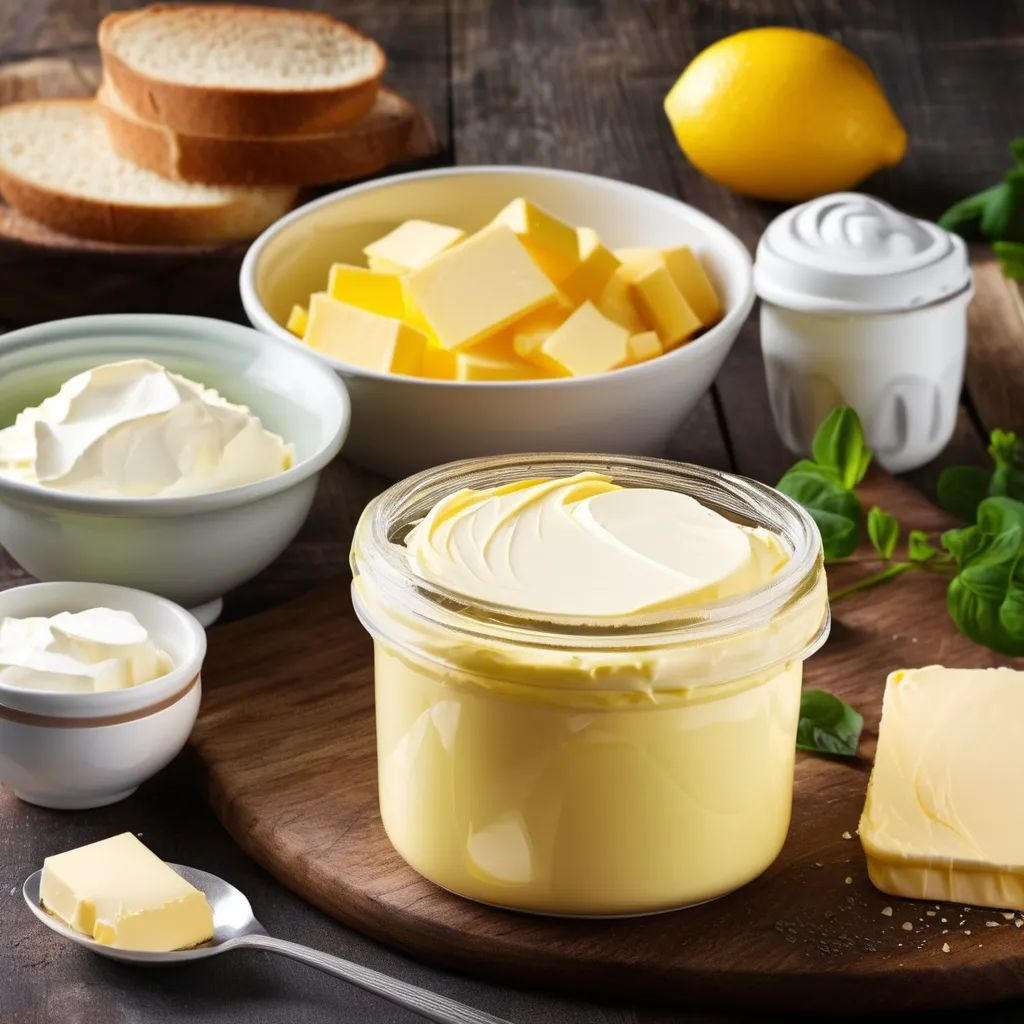Margarine/Low-Fat Spreads
• Type: Standard lecithin liquid, PC-enriched lecithin, or hydrolyzed lecithin liquid.
• Functions: Anti-spattering agent by forming a phospholipid film around water droplets. Improves stability, processing, and sensory properties in low-fat spreads.
• Margarines are water-in-oil (W/O) emulsions containing at least 80% fat and up to 18% water or milk. The emulsion is prepared by mixing a pasteurized water phase (including milk protein, citric acid, and salt) into a continuous oil phase (including fats, oils, monodiacylglycerols, and lecithin). Lecithin acts as an anti-spattering agent by forming a phospholipid film around water droplets, preventing coalescence and enabling slow water evaporation during frying. Salted margarine typically uses 0.3–0.8% standard lecithin, while salt-free varieties require PC-enriched or enzymatically hydrolyzed lecithins due to their reduced calcium sensitivity.
For health-conscious consumers, low-fat spreads with 20–60% fat offer alternatives to full-fat margarine. These spreads are stabilized with lecithin and monoacylglycerols, with gelatine used to adjust viscosity and enhance mouthfeel. Although low-fat spreads are unsuitable for frying, lecithin improves their processing, stability, and sensory properties.
